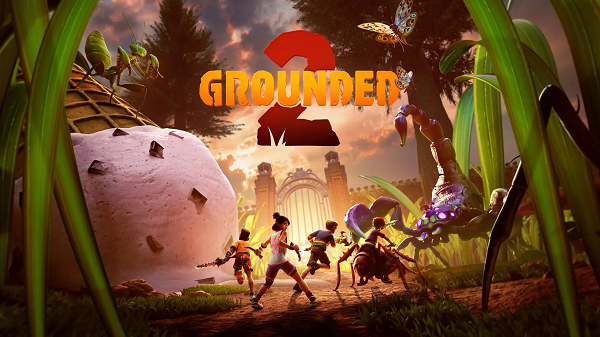Popular Now
Worshippers of Cthulhu offers a chilling blend of strategy, horror, and resource management set in a universe where reality bends under the presence of ancient gods. But among its many intricate systems, one stands out as the true driver of tension: the psychological instability of your cult members. Far more than a superficial status effect, madness in Worshippers of Cthulhu is an evolving, interconnected mechanic that alters gameplay deeply. This article explores the game’s sanity system in detail, tracking how it influences strategy from early recruitment to endgame ritual success—or catastrophic failure.
The Seeds of Madness: Early Recruitment Challenges

From the start, players must choose carefully who to recruit into their cult. Each potential follower has a unique “Sanity Threshold” and background traits that dictate how fast they succumb to the influence of the Great Old Ones. These stats are not visible upfront, making early decisions high-stakes gambles.
Recruitment Risk Factors
-
Curiosity: Increases the rate of exposure to arcane knowledge, speeding up mental decay.
-
Willpower: A hidden modifier that slows insanity progression—low values lead to faster breakdowns.
-
History: Ex-soldiers or trauma survivors are more prone to snapping under pressure.
Early Game Consequences
Choosing the wrong recruits can cause your cult to fracture before it grows. As early members lose composure, they begin spreading instability to others, much like a contagion.
Whispers in the Dark: Environmental Sanity Hazards
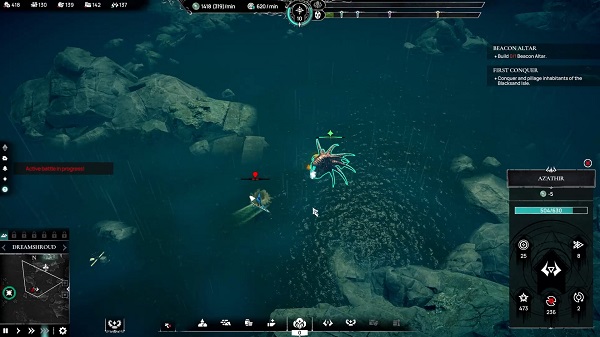
As players expand their cult’s reach into ancient ruins, derelict libraries, or forgotten temples, the very environments visited contribute to psychological wear and tear. This environmental madness is one of the game’s most subtle but dangerous elements.
Zone Madness Rating
Each location has a hidden “Madness Rating” affecting how much sanity cultists lose while there. A visit to a cursed monolith might boost artifact gain, but at the cost of mental erosion.
Stacking Effects
The deeper players explore, the more these environmental effects stack. A mission that would yield rare rewards may also drive three cultists into permanent paranoia or hallucinations.
The Madness Tree: Progression or Regression?
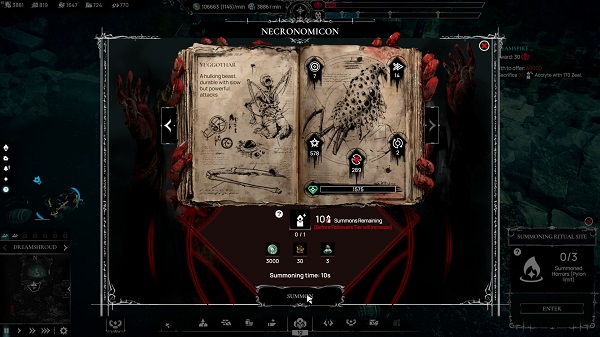
Worshippers of Cthulhu replaces traditional RPG skill trees with a “Madness Tree,” a branching system where mental instability unlocks both power and peril. Each level of insanity gives access to new skills, rituals, or passive traits—but always at a cost.
Examples of Madness Perks
-
Dreamwalking: Access visions of the future (minor gameplay hints) but with a risk of brain hemorrhage.
-
Blood Ecstasy: Buff allies after each sacrifice, while reducing leader sanity permanently.
Trade-offs and Tragedies
While tempting to go down the tree for immediate power boosts, players must assess whether the long-term cost in mental stability is survivable. Once a follower enters the final tier, they’re often unrecoverable—but dangerously powerful.
Contagion of the Mind: How Insanity Spreads
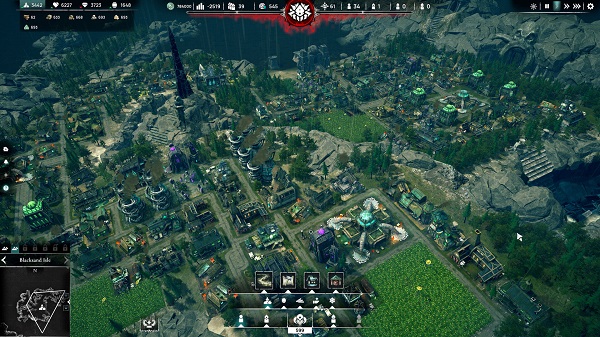
One of the most innovative aspects of the game’s sanity system is how madness becomes communicable. Followers begin to influence each other through proximity, shared trauma, or participation in rituals.
Mechanics of Mental Spread
-
Shared Dormitories: High-insanity members affect room stability.
-
Joint Missions: Party members lose additional sanity when traveling with unstable companions.
-
Group Rituals: Psychologically taxing rituals can cause synchronized breakdowns.
Spiral Effect
This creates a snowball dynamic. A single unstable cultist can tip the scales, dragging others down and potentially causing mass breakdowns, especially in tightly packed groups or communal settings.
Managing the Unmanageable: Sanity Recovery Methods
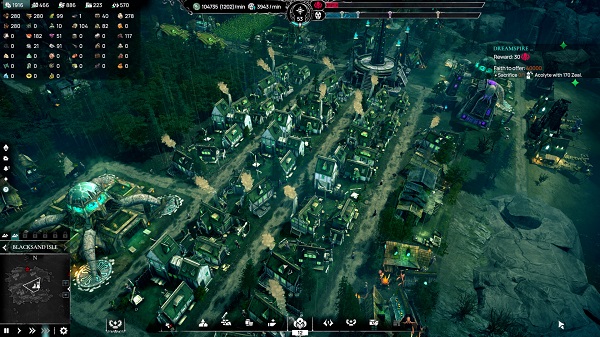
Despite the overwhelming pressure of descending madness, the game offers some methods to manage or delay insanity. These include both traditional and arcane healing approaches.
Sanity Recovery Options
-
Isolation Chambers: Remove cultists from group interaction but slow their productivity.
-
Psychoactive Brews: Brewed from rare herbs, they temporarily restore sanity but may cause dependencies.
-
Dreamless Sleep: Unlockable mid-game, prevents dream-based madness for a few days.
Balance and Limitations
These tools are not infinite or universally effective. Overuse of any recovery method creates new problems—addiction, dormitory unrest, or even new forms of trauma.
The High Cost of Ritual Power
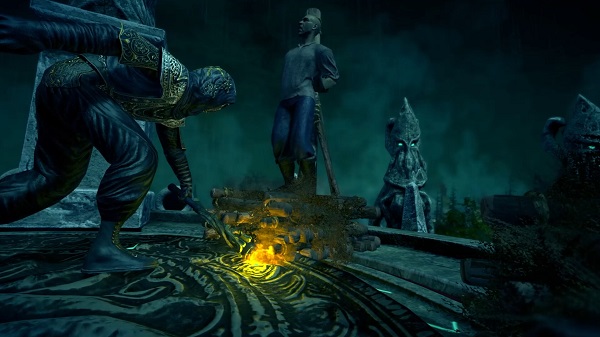
Major cult rituals provide powerful benefits like summoning eldritch beings or weather manipulation. However, they often cost significant amounts of collective sanity. Participation in such rituals is a calculated sacrifice.
Sanity Tolls per Ritual
-
Summoning Yog-Sothoth: All participants lose 30% sanity and risk permanent schizophrenia.
-
Time Rewind Incantation: Leader loses 60% sanity to reverse recent choices.
Strategic Timing
Deciding when to perform these rituals becomes the centerpiece of late-game strategy. Too early, and you lose your best minds. Too late, and enemies or internal chaos overwhelm you.
Madness-Driven Endings
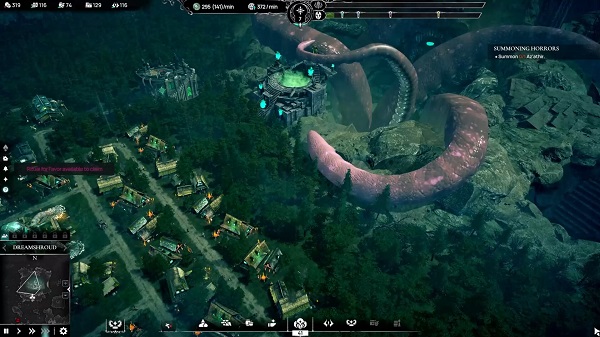
Worshippers of Cthulhu offers multiple endings, each driven by how well or poorly the sanity system is managed. Some endings are unlocked only if your entire cult succumbs to madness, while others require maintaining control until the final rite.
Types of Endings
-
The Shattered Cult: All members lost to madness—ends in chaos.
-
The Ascended Mind: Achieved by keeping your leader sane until the final ritual.
-
The Vessel of Nyarlathotep: Leader embraces madness and becomes a godlike conduit.
Sanity Metrics as a Narrative Tool
The ending is not determined just by which rituals were completed, but also the mental journey of the leader and their followers. It becomes a thematic statement about power and madness.
Event Chains That Trigger Mental Collapse
Random event chains—often disguised as minor subplots—can dramatically impact sanity. These include dream visitations, failed summonings, or unexpected betrayals.
Critical Event Chains
-
“The Librarian Knows”: Reading too many forbidden tomes triggers cascading paranoia.
-
“The Blood Offering Backfired”: A follower sees the wrong vision, loses sanity, then kills another cultist.
Emergent Chaos
Because of these unpredictable events, long-term planning is always subject to collapse. Sanity management must include contingency buffers for when everything inevitably goes wrong.
Leader’s Sanity and the Cult’s Fate
While managing follower sanity is critical, the true lynchpin of the cult is the leader. Their psychological profile and stability govern access to rituals, diplomacy, and long-term cult cohesion.
Leader-Specific Traits
-
Stubborn: Loses sanity slower, but ignores warning signs in others.
-
Charismatic: Reduces sanity loss in followers through speeches.
-
Fractured: Begins with half sanity but can see hidden ritual paths.
The Final Test
In the final sequence, your leader’s sanity becomes a key to unlocking or surviving the endgame rituals. If they break, you may lose access to major powers—or worse, trigger a bad ending prematurely.
Insanity as a Gameplay Identity
Ultimately, the psychological instability system isn’t just a mechanic—it’s the core identity of Worshippers of Cthulhu. It transforms a standard base-building horror game into a constant strategic dance between power and peril.
Lessons from the Madness System
-
Every advantage has a cost, often mental.
-
Long-term success demands sacrifice and foresight.
-
Madness isn’t failure—it’s transformation, for better or worse.
Thematic Integrity
By tying gameplay progression to narrative insanity, the game captures Lovecraftian horror in a way no amount of tentacles ever could. Madness isn't a side effect—it's the game.
Conclusion
The madness system in Worshippers of Cthulhu is more than a sanity meter—it’s a multi-faceted mechanic that weaves through every part of the experience. It influences who you recruit, where you explore, which powers you wield, and even how your story ends. Managing psychological instability becomes not just a survival tool but a strategic pathway and narrative arc. Through this system, the game embodies its theme of cosmic horror, where knowledge is dangerous and power always exacts a price. For those brave enough to play, the true terror is not what lurks in the dark—but what it does to your mind.












